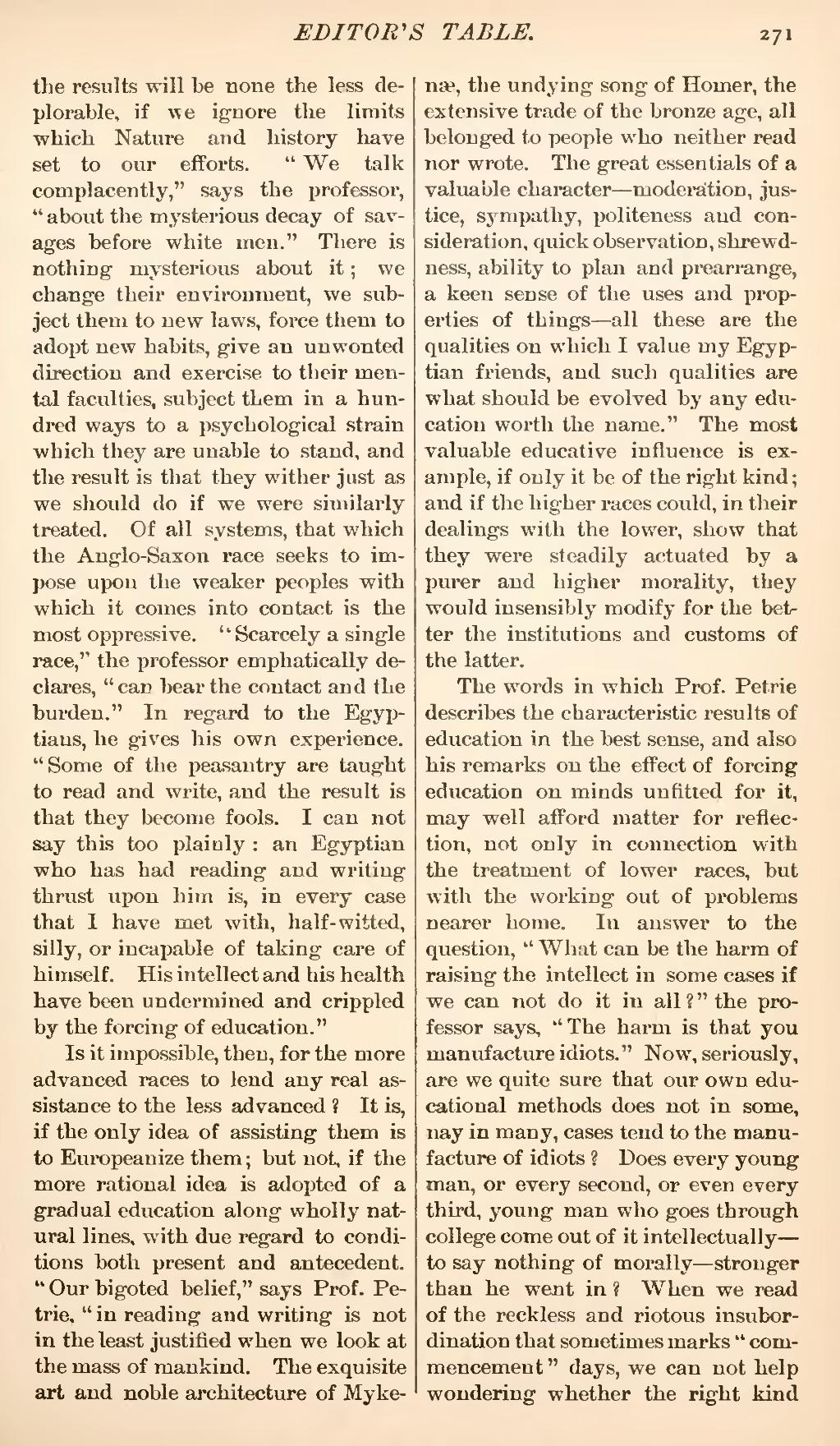the results will be none the less deplorable, if we ignore the limits which Nature and history have set to our efforts. "We talk complacently," says the professor, "about the mysterious decay of savages before white men." There is nothing mysterious about it; we change their environment, we subject them to new laws, force them to adopt new habits, give an unwonted direction and exercise to their mental faculties, subject them in a hundred ways to a psychological strain which they are unable to stand, and the result is that they wither just as we should do if we were similarly treated. Of all systems, that which the Anglo-Saxon race seeks to impose upon the weaker peoples with which it comes into contact is the most oppressive. "Scarcely a single race," the professor emphatically declares, "can bear the contact and the burden." In regard to the Egyptians, he gives his own experience. "Some of the peasantry are taught to read and write, and the result is that they become fools. I can not say this too plainly: an Egyptian who has had reading and writing thrust upon him is, in every case that 1 have met with, half-witted, silly, or incapable of taking care of himself. His intellect and his health have been undermined and crippled by the forcing of education."
Is it impossible, then, for the more advanced races to lend any real assistance to the less advanced? It is, if the only idea of assisting them is to Europeanize them; but not, if the more rational idea is adopted of a gradual education along wholly natural lines, with due regard to conditions both present and antecedent. "Our bigoted belief," says Prof. Petrie, "in reading and writing is not in the least justified when we look at the mass of mankind. The exquisite art and noble architecture of Mykenae, the undying song of Homer, the extensive trade of the bronze age, all belonged to people who neither read nor wrote. The great essentials of a valuable character—moderation, justice, sympathy, politeness and consideration, quick observation, shrewdness, ability to plan and prearrange, a keen sense of the uses and properties of things—all these are the qualities on which I value my Egyptian friends, and such qualities are what should be evolved by any education worth the name." The most valuable educative influence is example, if only it be of the right kind; and if the higher races could, in their dealings with the lower, show that they were steadily actuated by a purer and higher morality, they would insensibly modify for the better the institutions and customs of the latter.
The words in which Prof. Petrie describes the characteristic results of education in the best sense, and also his remarks on the effect of forcing education on minds unfitted for it, may well afford matter for reflection, not only in connection with the treatment of lower races, but with the working out of problems nearer home. In answer to the question, "What can be the harm of raising the intellect in some cases if we can not do it in all?" the professor says, "The harm is that you manufacture idiots." Now, seriously, are we quite sure that our own educational methods does not in some, nay in many, cases tend to the manufacture of idiots? Does every young man, or every second, or even every third, young man who goes through college come out of it intellectually—to say nothing of morally—stronger than he went in? When we read of the reckless and riotous insubordination that sometimes marks "commencement" days, we can not help wondering whether the right kind

